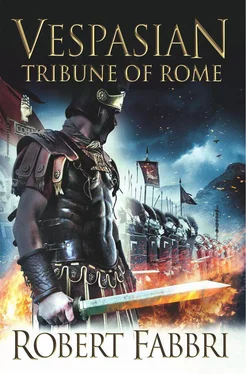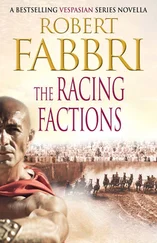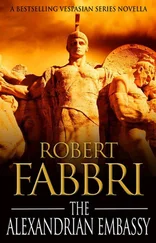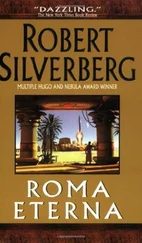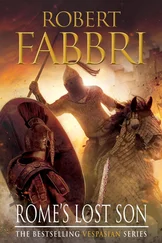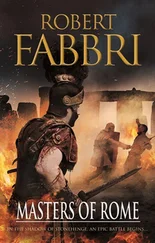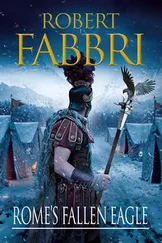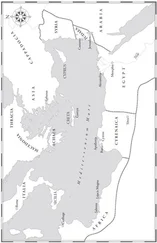Robert Fabbri - Tribune of Rome
Здесь есть возможность читать онлайн «Robert Fabbri - Tribune of Rome» весь текст электронной книги совершенно бесплатно (целиком полную версию без сокращений). В некоторых случаях можно слушать аудио, скачать через торрент в формате fb2 и присутствует краткое содержание. Жанр: Исторические приключения, на английском языке. Описание произведения, (предисловие) а так же отзывы посетителей доступны на портале библиотеки ЛибКат.
- Название:Tribune of Rome
- Автор:
- Жанр:
- Год:неизвестен
- ISBN:нет данных
- Рейтинг книги:3 / 5. Голосов: 1
-
Избранное:Добавить в избранное
- Отзывы:
-
Ваша оценка:
- 60
- 1
- 2
- 3
- 4
- 5
Tribune of Rome: краткое содержание, описание и аннотация
Предлагаем к чтению аннотацию, описание, краткое содержание или предисловие (зависит от того, что написал сам автор книги «Tribune of Rome»). Если вы не нашли необходимую информацию о книге — напишите в комментариях, мы постараемся отыскать её.
Tribune of Rome — читать онлайн бесплатно полную книгу (весь текст) целиком
Ниже представлен текст книги, разбитый по страницам. Система сохранения места последней прочитанной страницы, позволяет с удобством читать онлайн бесплатно книгу «Tribune of Rome», без необходимости каждый раз заново искать на чём Вы остановились. Поставьте закладку, и сможете в любой момент перейти на страницу, на которой закончили чтение.
Интервал:
Закладка:
Vespasian gave an unnoticed salute, turned and walked steadily back along the walkway, emulating, he hoped, Poppaeus’ example of sang-froid amidst the chaos of battle all around him.
The men of the first and second cohorts stood ready. Another flash of lightning ripped from the sky, turning their highly polished iron armour momentarily golden and causing a myriad of reflections to sparkle through the ranks. Rain poured off the legionaries’ helmets and down their necks, chilling them as they waited motionless for the order to attack. Despite the unpleasant conditions their morale was high. They replied with good humour to the encouragement of their centurions as they walked up and down the files inspecting equipment, praising their courage and reminding them of previous battles and exploits in which they had all shared.
Just behind the wall a century waited, with ropes in hand, for the order to pull it down. Behind them another century, with the planks ripped from the walkway, stood ready to span the trench beyond the wall. A lone sentry stationed up on the parapet peered across the battlefield, watching for the main gates, clearly visible in the fires surrounding them, to be opened and for Poppaeus’ sortie to storm out.
Vespasian stood next to Pomponius in the front rank of the leading century. Over to his right he could just make out Paetus’ cavalry. Adrenalin pumped through his body as he mentally prepared himself to kill without hesitation or pity. He flexed the muscles in his shield arm to prevent them from stiffening and checked, yet again, that his gladius was loose in its sheath.
‘When we go through it must be quick,’ Pomponius told him for the third or fourth time. ‘But not so quick that we trip on any stakes left lying around.’
Vespasian glanced at his commander, who was thirty years his senior, and felt reassured by the look of tension on his jowly face; the waiting was evidently playing on Poppaeus’ nerves as much as on his own.
A sudden shout came from the sentry above them. ‘They’re through, sir.’
Pomponius glanced at Faustus. ‘Give the order, centurion,’ he shouted.
‘Make ready, lads,’ Faustus bellowed.
The ropes went taut.
‘On the count of three pull like you’d pull a Nubian off your mother. One, two, three!’
With a massive simultaneous heave sixty feet of wall stakes crashed to the ground as one. The men carried on pulling on the ropes, dragging most of the stakes clear from the path of the waiting legionaries. As the century with the planks rushed through the opening Pomponius gave the order to advance. The cornu blared out the deep notes of command and the cohorts broke into a slow jog, up and over the rough ground disturbed by the uprooted stakes and down across the newly laid, wooden bridge over the trench.
Before the majority of Thracians had registered the new threat away in the darkness on their flank, the first cohort had covered two hundred paces and the second had cleared the wall. Behind them the ala of auxiliary cavalry streamed past to form up on their extreme right.
Pomponius gave the orders to halt and then to form up two centuries deep to the left. Fifteen hundred men turned as one to face the enemy.
A wave of panic swept through the Thracian masses. They were already aware of the sortie at the gates; now this new threat meant that they would be fighting on two fronts, as well as having to endure the barrage of missiles from the wall. Then, from further up the hill, came the prolonged shrill cry of hundreds of female voices. A flash of lightning lit up the hillside and, for a couple of moments, the source of that cry was plainly visible. The Thracians’ women had come, bringing their children with them, to live or die with their men.
The sight breathed fire into the hearts of the warriors. They abandoned their efforts to scale the wall and with a swirling, chaotic manoeuvre turned and faced the new foe.
‘Forward!’ Pomponius cried, excitement causing his voice to rise an octave.
The rumbling cornu notes resonated over the Roman line, the standards dipped and, with a crash of pila against shields, it moved forward.
A hundred paces away, just visible as darker shadows against the lighter fire-flecked background, the Thracians let out a soul-shivering howl and stampeded towards the Romans. A new series of lightning flashes revealed them brandishing rhomphaiai, spears and javelins wildly above their heads, splashing through the pools of water and mud that caused many of their number to lose their footing and disappear beneath the tide of trampling boots surging after them.
All around him Vespasian could hear the cries of the centurions exhorting their men to hold the line, and keep the steady advance under control. The first arrows and javelins had started to fall amongst them, bringing down an unlucky few. There was no order to raise shields, there was no time, the two sides were closing far too quickly. The next order would be ‘Release pila at the charge’. When it sounded the legionaries of the front three double-centuries of the first cohort and the front three standard centuries of the second pulled their right arms back, counted three paces, hurled their heavy pila skywards and immediately drew their swords without breaking step. Over seven hundred pila rained down into the oncoming mass of howling, hate-filled warriors, cracking through bronze or iron helmets as if they were no more than eggshells, slamming men to the ground in a welter of blood, throwing others backwards with the weight of impact, long razor-sharp pilum heads protruding out behind them and skewering the man following, leaving them obscenely coupled by shafts of iron, thrashing in the mud in the last throes of life.
Vespasian felt the cold air scrape down his throat as he pushed himself forward the last few paces. His shield was raised so that he could just see over the rim. Next to him, on his left, Pomponius was wheezing with the exertion of the charge, and, for a brief moment, he wondered how a man of Pomponius’ bulk could still find it within himself to fight in the front rank. That thought was pounded out of his mind by the shock of impact that shuddered through his body as the two sides collided. Though less numerous, the heavier and more densely packed Roman line punched the Thracians back, knocking their leading warriors off their feet, pushing on a couple of paces before coming to a grinding halt, their rigid wall of shields still intact.
Then the close-quarters killing began. The lethal stabbing blades of the Roman war machine began their mechanical work, flashing out from between the rectangular shields, blazoned with the crossed lightning bolts and goat’s head insignia of the IIII Scythica. Vespasian’s first sword thrust was a firm jab to the throat of a stunned Thracian at his feet, opening it in with a surge of blood that sprayed up his legs. He quickly turned his attention to the screaming horde in the darkness in front of him. Rhomphaia blades hissed through the night air, spear points thrust out of the gloom; it was almost impossible to know whom you were fighting. He held his shield firmly in line with those on either side and stabbed again and again, sometimes feeling the jolting rigidity of a wooden shield, sometimes the soft give of pierced flesh and sometimes no contact at all. A close-by scream to his right suddenly distracted him: the legionary next in line collapsed, almost knocking Vespasian off balance; blood from a deep rhomphaia wound to the man’s neck sprayed over his sword arm and the side of his face. Vespasian just had the presence of mind to crouch low behind his shield and aim a wild stab into the belly of a Thracian pushing into the resulting gap. The man doubled up; his head was immediately punched back by the shield boss of a second-rank legionary, stepping over his fallen comrade to plug the breach in the line. Vespasian felt the replacement’s shoulder close to his and continued stabbing forward.
Читать дальшеИнтервал:
Закладка:
Похожие книги на «Tribune of Rome»
Представляем Вашему вниманию похожие книги на «Tribune of Rome» списком для выбора. Мы отобрали схожую по названию и смыслу литературу в надежде предоставить читателям больше вариантов отыскать новые, интересные, ещё непрочитанные произведения.
Обсуждение, отзывы о книге «Tribune of Rome» и просто собственные мнения читателей. Оставьте ваши комментарии, напишите, что Вы думаете о произведении, его смысле или главных героях. Укажите что конкретно понравилось, а что нет, и почему Вы так считаете.
